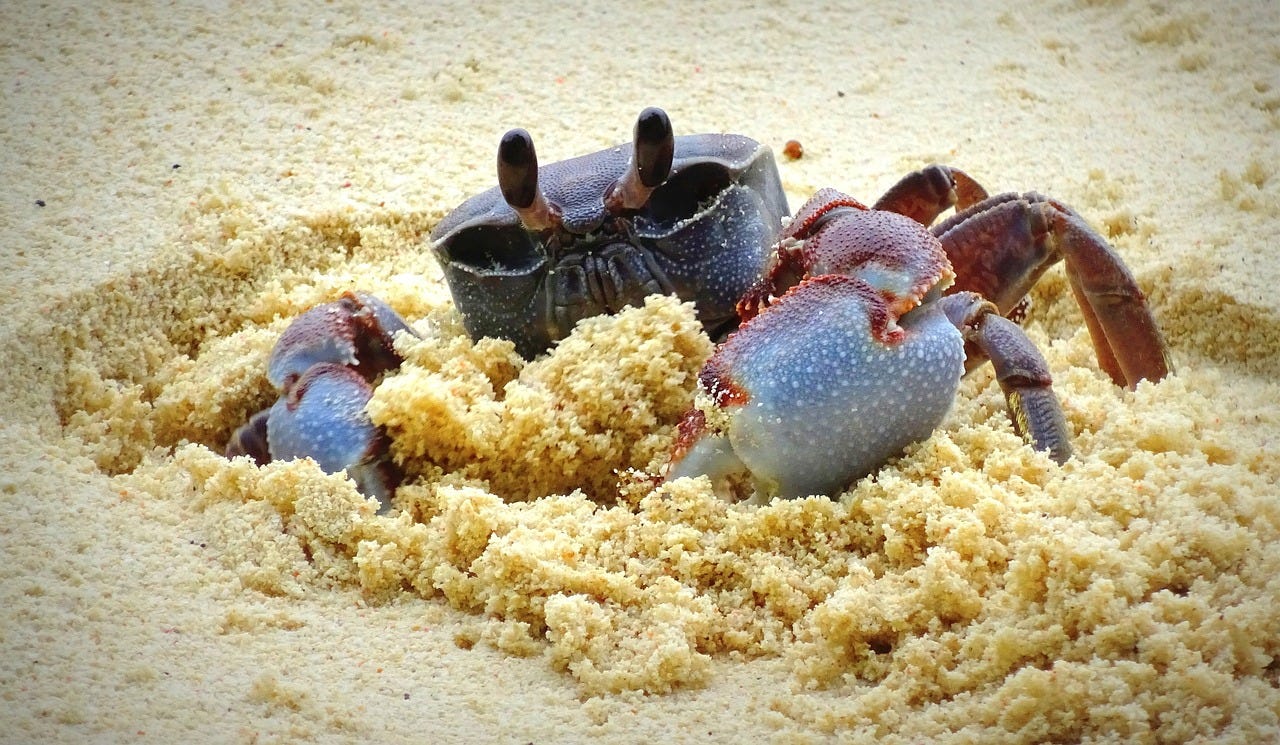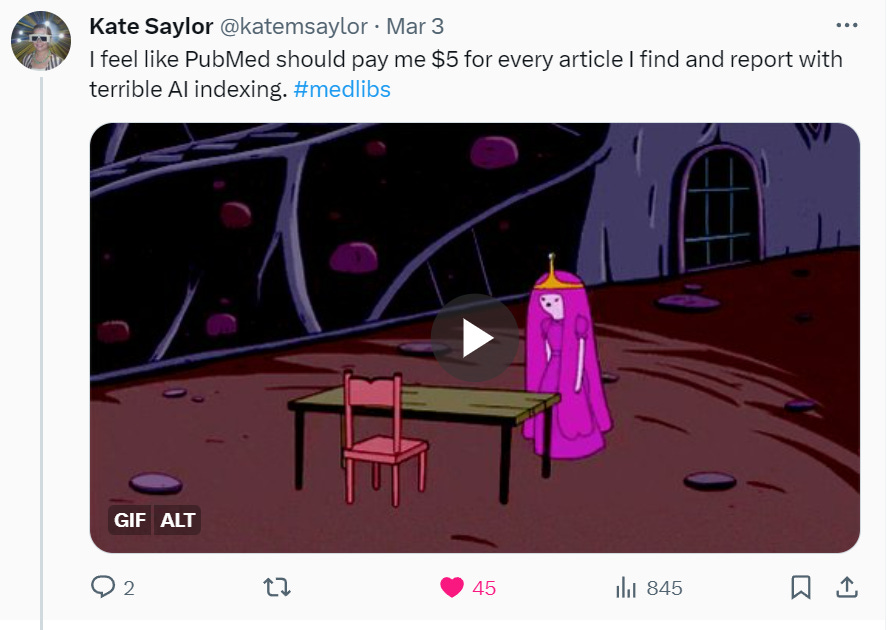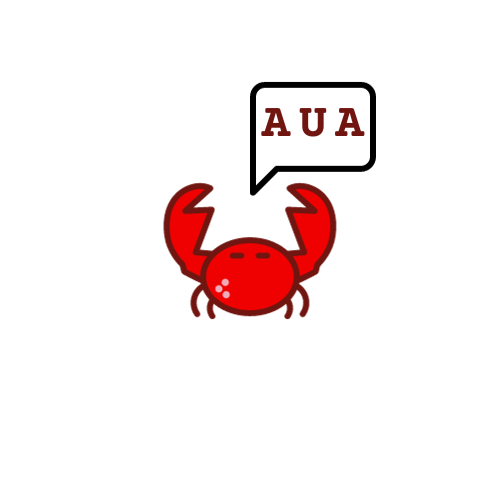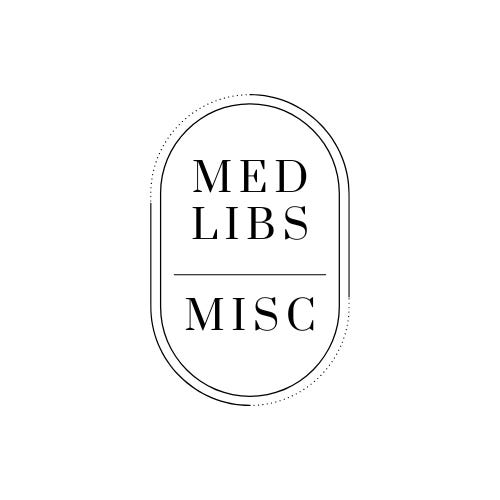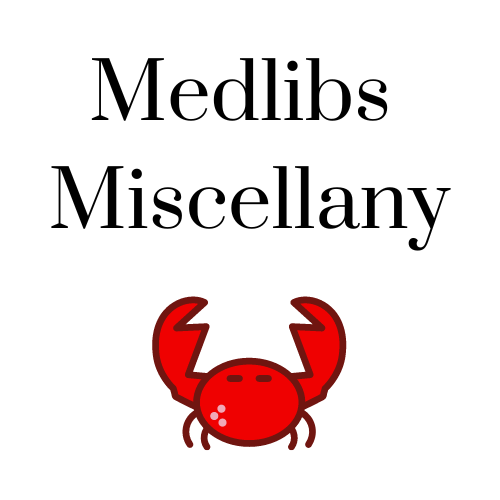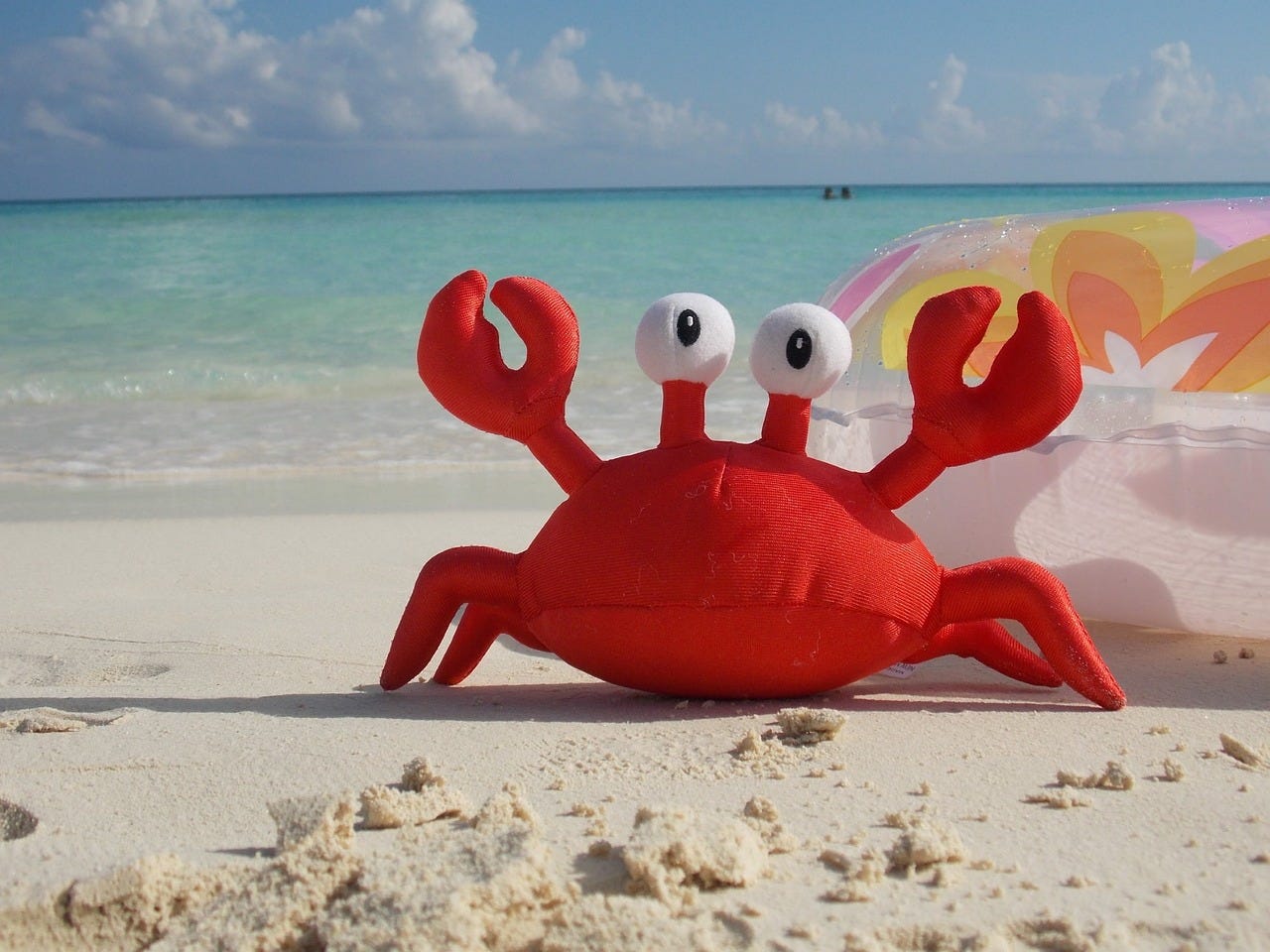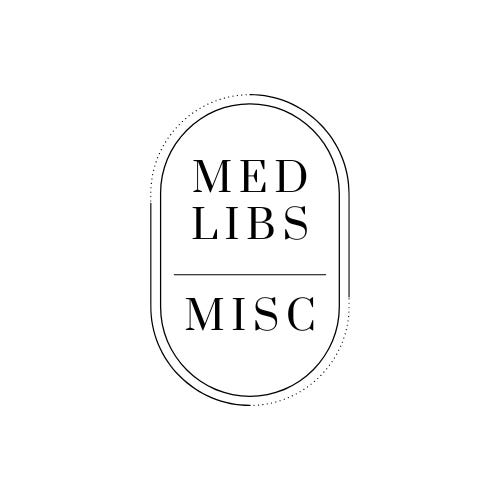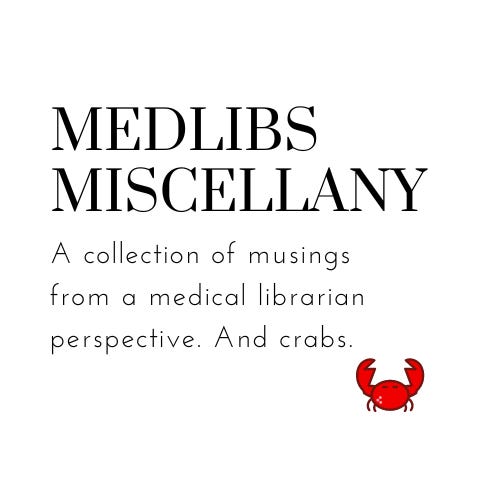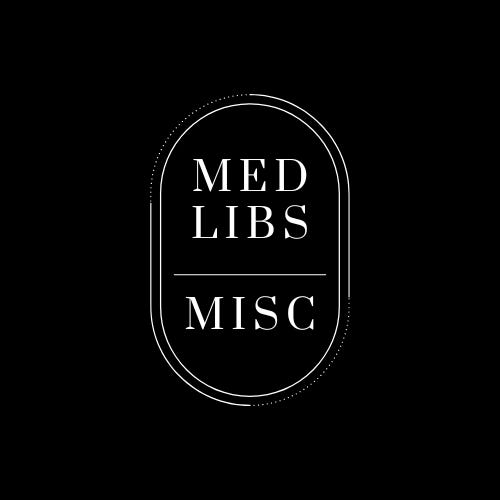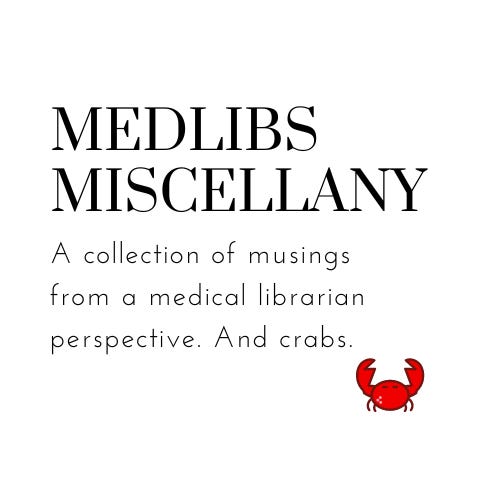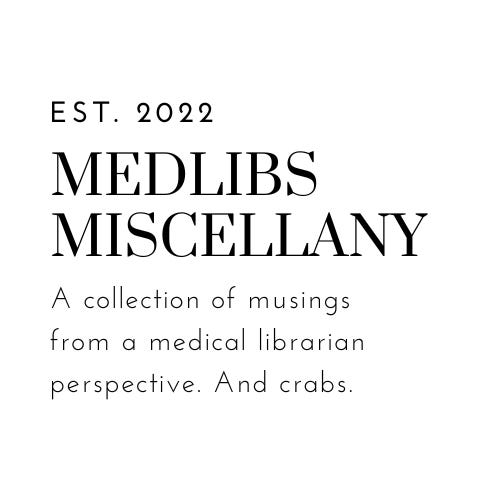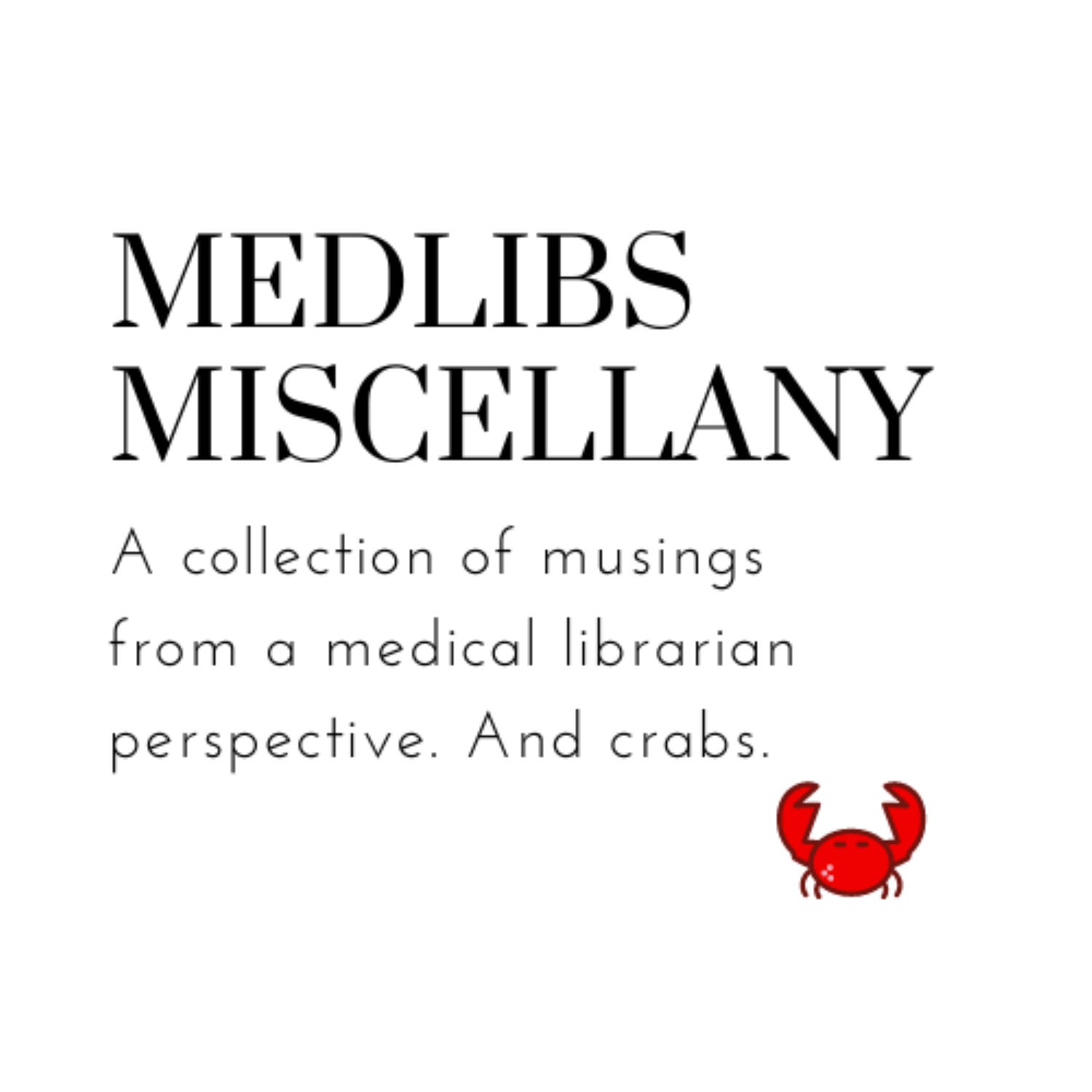Discover Medlibs Miscellany
Medlibs Miscellany

 Medlibs Miscellany
Medlibs Miscellany
Author: A collection of musings from a medical librarian perspective.
Subscribed: 2Played: 7Subscribe
Share
© Tracy Shields and Carrie Price
Description
We are medical librarians talking about medical library things. We can be silly or serious, but always curious.
medlibsmiscellany.substack.com
medlibsmiscellany.substack.com
15 Episodes
Reverse
NOTE: Apologies for the repost. We discovered a problem with our RSS feed. Hopefully this will fix things. -TracyIn this episode, Carrie and Tracy are joined by Zahra Premji, otherwise known as @ZapTheLibrarian if you are a part of the #medlibs community X, The Platform Formerly Known as Twitter.Hear about Zahra’s path to medical librarianship and supporting evidence synthesis. She loved research so much, she just didn’t know when to stop — and as it turned out, she is really good at it! She’s now leading the Canadian Evidence Synthesis Institute, which is based on the Institute of Museum and Library Services-funded Evidence Synthesis Institute at the University of Minnesota.Zahra notes that she really enjoys the process of searching and the thrill of the chase of finding relevant articles. She’s also not remotely shy about her preference for the Ovid platform. (EBSCO, if you’re reading, we’re sorry!)What else? Oh yeah, “searching is addictive,” she says.Still, there are challenges to supporting evidence synthesis. Don’t look at our searches from three years (or three weeks) ago, because we’re constantly learning and trying to stay current. Also, we need time. It’s important to sit with a topic to come up with a good search, and having to rush means there are going to be mistakes.Zahra and Tracy discuss different methods of doing a seed paper analysis. Zahra (and her co-contributor, Alix Hayden) developed a template, a version of which is posted on OSF. Carrie, on the other hand, is a PubReminer fan. And don’t discount some of the featured tools in the SR Accelerator suite.She won’t toot her horn, so Carrie does it for her: Zahra’s a co-author on this recent paper published in Research Synthesis Methods. Are those search strategies really “available upon request”? Apparently, not always. Take a look at the amazing and crabby poster that preceded the published article.Neilson, C. J., & Premji, Z. (2023). A study of search strategy availability statements and sharing practices for systematic reviews: Ask and you might receive. Research Synthesis Methods, 10.1002/jrsm.1696. Advance online publication. https://doi.org/10.1002/jrsm.1696Zahra remembered that Carrie recently collaborated with Melissa Rethlefsen on a paper about reproducibility (Melissa recently offered a webinar on it here).Rethlefsen, M. L., Brigham, T. J., Price, C., Moher, D., Bouter, L. M., Kirkham, J. J., Schroter, S., & Zeegers, M. P. (2023). Systematic review search strategies are poorly reported and not reproducible: a cross-sectional metaresearch study. Journal of Clinical Epidemiology, 166. https://doi.org/10.1016/j.jclinepi.2023.111229 We wrap up with a shout-out to the Canadian Health Libraries Association and its sometimes-overlap with MLA.We want to thank Zahra for being a wonderfully engaging guest, and thank all of our listeners for your continued listening support of Medlibs Miscellany.Thanks for reading Medlibs Miscellany! Subscribe for free to receive new posts. This is a public episode. If you would like to discuss this with other subscribers or get access to bonus episodes, visit medlibsmiscellany.substack.com
Happy holidays, medlibs! It’s time to stuff your stockings (not to be confused with "Stockings, Compression"[Mesh]) with new "Medical Subject Headings"[Mesh]! There’s a lot to cover here, and we don’t even really get into MeSH changes (like updates to scope notes, added entry terms, combined or merged terms, etc.), just the new terms. Take a look at NLM’s What’s New in MeSH page to see the current documentation and to see what is planned for 2025. Also FYI: NLM and NNLM will be holding 2 classes in January 2024 that will discuss 2024 MeSH highlights and changes that will impact PubMed searching. Links:* 2024 MeSH reports* MeSH terms new for 2024 * MeSH terms changed for 2024* how indexing happens (NLM faqs)* Exploring the impact of automated indexing on completeness of MeSH terms (CHLA-ABSC 2023 presentation)* JMLA: Reflective practice and health sciences librarians by Jolene M. Miller * Matthew Noe (@NoetheMatt on X and elsewhere) can explain #GraphicMedicine things like Comic Book versus Graphic Novel MeSH better than we canBe safe out there this holiday season, medlibs. Don’t let the "Stress, Psychological"[Mesh] get you down. Stay alert if you search "christmas"[ti] — you never know what unexpected literature you might see (and not be able to unsee) — and don’t get humbugged by the BMJ Christmas issue articles. This is a public episode. If you would like to discuss this with other subscribers or get access to bonus episodes, visit medlibsmiscellany.substack.com
In this episode, Carrie and Tracy answer some questions (and sometimes go a bit off track, but hey, if this isn’t your first listen to the pod, you should expect that). From our favorite question framework to GenX cereals to how to deal with misspelled words in searches to what’s the best eats in St. Mary’s County, Maryland (spoiler: *shrug*). Because we are over the place, here’s a hodgepodge of links and comments:* We like PICO, CoCoPop, SPIDER, and BeHEMoTh (This is a really nice libguide on frameworks!)* Grant and Booth’s Typology of Reviews (2009)* Count Chocula cereal does still exist - you can even buy it on Amazon. There’s also Boo-Berry, Franken Berry, Frute Brute, and Fruity Yummy Mummy to round out the monster cereal options. They’ve been around for over 50 years.* Mikey likes it!* Carrie likes The Lens and Dimensions for grey lit * CADTH’s Grey Matters search* University of Minnesota’s Evidence Synthesis Institute* Publish or Perish software * “It’s me, hi, I’m the problem, it’s me…” Apparently Tracy is a bit of a Swiftie, still listening to “Say Don’t Go” on repeat. Fun fact: a long time ago (2010 maybe?), Tracy saw Taylor getting coffee and breakfast at Fido in Nashville.* A systematic search is systematic, obviously. (We don’t have a good answer, made clear when we pull out the Oxford Dictionary.)* Sorry John, we don’t know where to eat in St. Mary’s County. Maybe this will help?* Turner and Eisenstein’s Common Misspellings and Their Impact on Health Sciences Literature Search Results (2023)* @JaniceKung’s tweet about misspellings (apologies for getting your name wrong in the episode!)* It’s corn!* Retraction Watch (and the RW database) is wonderful. Its data has been acquired by CrossRef, making it openly available and free. This webinar goes into more detail.* Latin. So helpful. Agricola means farmer.* When are you done searching? When you’re done, obviously. (Seriously though, it’s hard to know!)* [tw] versus [tiab] in PubMedFinally, we answer a question about what we would be if we weren’t medlibs and money wasn’t a factor (because we all know that medlibs really rake in the big bucks, amirite?). Tracy would be a stunt driver. Did you know there are 12 Fast & Furious movies, if you count the expanded universe ones? Tracy agrees that number 5 is number 1. They are not the same as the John Wick franchise, whatever Carrie might think. Carrie understood the assignment: she wanted to be Indiana Jones (not really… he isn’t the greatest example of an archaeologist), after reading The Egypt Game as a child. Carrie would also wish to be a famous singer — even better than Taylor Swift! (If you listen closely, you can hear Tracy gasp at the audacity).MeSH 2024 should be officially released soon, so that will likely be the next episode. Thanks for asking us questions and listening to the podcast! This is a public episode. If you would like to discuss this with other subscribers or get access to bonus episodes, visit medlibsmiscellany.substack.com
This episode was a bit unplanned (*ahem* not that we plan every episode), and arose after a brief text exchange where Carrie talked about an experience she had earlier in the day. We decided it was something that might be worth a broader discussion - and thus was this episode born! Carrie and Tracy chat about the problem of teaching evidence synthesis work.Carrie wrote a blog post for Covidence about using systematic reviews as class assignments — spoiler: we aren’t fans of that, or cherry picking. (In the data/evidence sense, as we do like cherries in general. We also like blueberries, and blackberries, and…) The PRISMA flow diagram is not something you can just fill out whenever, either. Grant and Booth’s 2009 article on typology of reviews is a great resource to learn about the various types of reviews, from narrative to systematized to systematic, and everything in between. There’s also a more recent article from 2019 by Sutton and colleagues that expands on the typologies that is a good reference for all the reviews possible.Searches take a long time to do and are not something that can be thrown together quickly. (A quick recommendation to read Amanda Ross-White’s 2021 article in JMLA, “Search is a verb: systematic review searching as invisible labor”, if you haven’t already.)Tracy mentioned Luddites and perpetuated misinterpretations in the process. This TikTok from Scientific American offers a correction to Luddite slander, and provides some timely context (AI in particular comes to mind). Carrie mentioned the Right Review tool, which is pretty nice! Also shout out to the Bond University folks who developed the SR-Accelerator tools and promote a well-planned 2weekSR. We also talk a bit about AI with our evidence synthesis work (probably more to come in future episode about that).Oh, the cookies we mentioned? Those are from Levain Bakery. This is a public episode. If you would like to discuss this with other subscribers or get access to bonus episodes, visit medlibsmiscellany.substack.com
This episode is part 2 of the conversation in MM.08 between friend-of-the-pod Jenn and Tracy. Carrie got the fun job of listening to all the messiness and making it into an episode. We touch on mentorship — formal and informal. Jenn mentions career contessa (not to be confused with the barefoot contessa, aka Ina Garten — Tracy is a big fan of her), that has a book and a podcast. Jenn also recommends this article on motherhood at work.How do you name your files and organize things? Jenn and Tracy aren’t great at it. Know of a good guide or webinar on naming conventions or standards? Please share! We can always use a bit more professional development with that.We have deep respect for catalogers (and folks who are good at naming files, for that matter). For our fellow non-catalogers, the 050 field is for Library of Congress call number, and the 046 field is for special coded dates. (Yes, we had to Google that. No we don’t know what “special coded dates” are either.) Catalogers: thank you for making things findable. In a bit of oversharing, Tracy mentions being “an accountant” as an optional answer when you don’t want to explain your job, especially if your work is stigmatized. (For the record, this is a sex positive, non-kink shaming podcast.)Have feedback or suggestions about the podcast? Let us know! You can email us or ping us on social media. Like, subscribe, or leave a review. We’d love to hear from you. This is a public episode. If you would like to discuss this with other subscribers or get access to bonus episodes, visit medlibsmiscellany.substack.com
As you may have heard, we’re not going to have a full August episode — Tracy and Carrie are taking a mini-summer break! But it’s far from a restful break. Here’s what we’ve been up to both inside and outside of our professional lives:CarrieI’m an academic librarian at a large, public university, and that means that August is my time to prepare for fall teaching sessions. I work with health professions faculty and instruct on average 40 class sessions per semester. How do I prepare for the onslaught of fall instruction? It means that I have to check course schedules, sections, and instructors to see who’s teaching the research methods classes that I like to visit. It means reaching out to the faculty, if they haven’t found me first, to try to find a time to get on their schedule. And it means REPRESENTING for my profession — and by that I mean absolutely squashing any stereotypes they might have of librarians reading books and shushing people. That means I have to provide excellent services while also setting expectations for those services.August of this year also means that I’ve submitted a tenure portfolio for consideration of permanent status at my university. “Permanent status” is what we call “tenure.” My position is one of those unique tenure-track librarian positions. I’ve been at my current job for three years now, but working as a librarian for over eleven! If you work in academia, then you know that the tenure portfolio is an almighty beast not to be f*cked with. There is no f*cking around and finding out. I’ve got a LOT of big feelings on the process and the “status.” Maybe I’ll get the chance to talk about it on the pod someday.Some of you may know that I broke my wrist when I fell attempting to do the Hump on roller skates back in January (note to self: you do not roller skate). Believe me when I tell you that breaking bones is no fun and your affected bone, once healed, will hurt forever. In an effort to get my range of motion back, I decided to get back into playing the cello, which is something I had neglected for a few years. I bought myself a new cello for my birthday in April to replace the one that I’d had since 1993, and soon found myself playing in the pit of the Glyndon Area Players’ production of The Music Man. The rehearsal and production took up a whole lotta time and ran through the first two weeks of August. When Tracy and I were discussing the logistics of recording and editing an August episode, I’m sorry to say that I melted into a giant puddle on the floor.Meanwhile, I just can’t quit making YouTube videos. They scratch a creative itch and give me a platform to offer guidance on searching, systematic reviews, and literature review methods (and complai — I mean “critically appraise”). Join me there if that’s your thing!TracySix months ago, I packed up my life for a new adventure. New town, new job and work arrangement, new duties, new colleagues, new living space (that Carrie helped me pick out!), new couch… lots of new things. It’s finally catching up to me. With Carrie being so busy as well, it felt like a good time to take a step back, take a rest (mostly on that new couch, because it is ridiculously comfy), and reflect on just how much has changed. Being in Maryland, there are a lot of crab things. Every time I see something crab, I think about MeSH. Carrie tried to convince me to get a pair of crab pajamas. I’m debating if I should get a crab license plate. I got Boone, my canine companion, some Trader Joe’s Crab Paws — TJ’s is easy walking distance from me, which is really nice change. Now I just need to take time to hit the beach and look for real crabs.Stay tuned throughout the fall for more special guests, hot topics, and everything you ever wanted to know about life as a medical librarian. Have an idea? Interested in being a guest? Send us an email at medlibsmiscellany@gmail.com. This is a public episode. If you would like to discuss this with other subscribers or get access to bonus episodes, visit medlibsmiscellany.substack.com
Carrie (she/her) and Tracy (she/her) are joined in this episode by Marissa Testerman (she/her), We asked her what she wanted to talk about, and Marissa shares her experience as an early career medical librarian and path to #medlibs-land. (Yay for “be a librarian” as a plan B!)Marissa mentions how difficult it can be to find a library position (of any kind) when geographically limited and some reasons for staying in one area - family and community are vital - instead of moving for job opportunities. Uprooting your life for your career is sadly common in this field (look for more on this in an upcoming newsletter). Relocating for a #medlibs job can be especially harrowing for marginalized folks, such as those in BINPOC or LGBTQIA+ communities.We also chat about professional development things as a new medical librarian, including training from colleagues, mentoring through MLA, and online places like MLA caucuses (so many!), listservs galore, #medlibs Twitter (Marissa is @berrybiblio because she loves strawberries), and the #medlibs Discord. Marissa name checks Zahra Premji as a fantastic colleague who has helped so many #medlibs with systematic review/evidence synthesis work - we agree! There are so many wonderful #medlibs who give of their time and expertise to answer questions, mentor, or help other #medlibs.Marissa started out in access services, which means she has seen some unexpected things in returned library materials. A printed out selfie while grilling as a bookmark?! Weird, but there are worse things found left in library books, so maybe she got lucky. Speaking of library books, be careful with pets because some of them find paper products tasty, be it books or toilet paper.Want to explore bolero glam? Marissa recommends this Spotify playlist as a starting point. You can also get a taste with Natalia Lafourcade's Tiny Desk Concert. Finally, of course we had to ask Marissa about crabs. Tracy suggested she try a lowcountry crab boil (aka seafood boil) during her Charleston visit.Thanks for joining us for this episode. Reach out to us if you have thoughts or suggestions on upcoming episodes. Don’t forget to like and subscribe! This is a public episode. If you would like to discuss this with other subscribers or get access to bonus episodes, visit medlibsmiscellany.substack.com
This episode is a conversation between Tracy and friend of the pod and “omg what kind of group chat did I get myself into?!” participant, Jenn Monnin. We talk about how Jenn came to be a #medlibs after her experience in public libraries and transferrable skills. We also touch on collection development, mentoring and the value it has in professional development, and applying for jobs.In talking about collection development, Tracy mentioned you may need to know how medical journals and books can be referred to by color. She did a Twitter thread about this a few years ago. Also, readers’ advisory is an art!Jenn talked about how to use job postings to guide professional development and skill assessment. She also makes a great point that it’s not your responsibility to decide if you are qualified for a position - that’s the search committee’s responsibility.As Jenn can attest, cold emailing someone is a vital skill (that’s how she ended up in our group chat!). Sometimes it doesn’t go anywhere. Sometimes it can help you find folks that can serve as mentors (formally or informally) or make up your “safe” people.A special thank you to Carrie, who put this episode together from an all-over-the-place conversation, even though she had no idea what we were talking about (before or after, to be fair). This is a public episode. If you would like to discuss this with other subscribers or get access to bonus episodes, visit medlibsmiscellany.substack.com
In this latest episode of Medlibs Miscellany, Carrie and Tracy discuss library instruction - how we teach, who we teach, and our experiences with teaching.Pedagogical (Tracy can’t say it, but she can sort of sometimes spell it) theories abound, but the big takeaway? Always have a backup plan. If things are going to go wrong, they will. Sometimes that mean no internet, or getting interrupted by a fire alarm. Teach to your audience and have your elevator pitch ready. Medlibs may have limited time to pass along a lot of information to varied groups, like students, nurses, graduate students, physicians, or other staff. We think it’s good practice to know what your audience is like - different groups have different needs after all - and adjust to their needs. The pandemic changed instruction in a lot of ways. Pre-pandemic, not wearing pants while teaching was an anxiety-ridden nightmare; post-pandemic and working from home means not wearing pants while teaching was a choice. (KIDDING!) We have the pandemic to thank for Carrie’s YouTube channel and videos. It’s important to be mindful of accessibility. Section 508 of the Rehabilitation Act of 1973 outlines what is expected and can guide what you do. Something as minor as checking your color palette for color blind compatibility can be a huge thing for users. Use Ctrl+ to increase screen size, because typography and fonts aren’t always large enough for good viewing. There are lots of tools to help you with accessibility compliance, including some built into office software like Word and PowerPoint. Need a place to start? Try writing good alt text for images in your presentations and online posts.Getting folks engaged with virtual teaching is a struggle, especially with sometimes dry content like PubMed and MeSH. There are all kinds of tools to use for engagement. Carrie suggests using Padlet combined with a scavenger hunt. She also talked about the Cephalonian approach to library orientations. A few other things Carrie mentioned: Slido for interactive engagement; Microsoft Forms for classroom exercises; surveys for assessment.We think pediatric residents and other providers have the most fun because they have toys. Dr. Glaucomflecken has some good advice on how to ace your pediatrics residency interview; I mean, pediatrics is so easy, right? STAT has a good profile of him. We like to make people feel comfortable in our classes. Sometimes that means going off-script and creating a safe space for people to ask questions. Making the physical space welcome for training and instruction is good, too. Carrie suggests Lofi Girl’s YouTube channel for lofi music vibes as they come in, and timers like this 10-minute puppy timer during activities. Some last minute advice: during your introduction, note how you like to be addressed (Miss Carrie! We’re not fans of “ma’am” though) and your pronouns (something we need to add to our episodes, come to think of it…). And typos might happen - shi(f)t work and pub(l)ic health have happened to us - so keep that sense of humor on your teaching journey. This is a public episode. If you would like to discuss this with other subscribers or get access to bonus episodes, visit medlibsmiscellany.substack.com
(A quick note about this episode: we are all using various devices for audio, and you’ll notice some differences in sound quality. We hope the content more than makes up for any problems you may hear.)Carrie and Tracy are joined by Katie Lobner to chat about what it’s like doing systematic reviews. Katie does a lot of systematic reviews, and has a lot of experience in searching. We talk about how Katie - who has a science background! - got into medical librarianship, mentorship, authorship, the work around systematic reviews, our favorite databases, and (of course) crabs. MLA has advocated for librarians to have authorship on systematic reviews and other evidence synthesis products. See also Amanda Ross-White’s excellent commentary “Search is a verb: systematic review searching as invisible labor”, published in JMLA. Not sure what kind of review to suggest? Cornell University Library evidence synthesis service has a really handy decision tree to help figure out what kind of review type you need. The polyglot search translator is another good tool for searchers.Be warned, the Radiolab episode on crabs Carrie mentioned can be surprisingly emotional. Finally, we don’t talk about it in the episode, but in case you missed it there’s a grumpy tweet about using pop culture references in journal titles that has some great responses. Personally, I want a umbrella review referencing Rihanna. (This is close but doesn’t really count.) And because any time Rihanna’s Umbrella is mentioned, you should watch the fabulous lip sync version from Tom Holland. This is a public episode. If you would like to discuss this with other subscribers or get access to bonus episodes, visit medlibsmiscellany.substack.com
In this episode, Tracy and Carrie (but mostly Tracy, because Carrie lets her talk more than she should) talk about searching. We don’t necessarily get into how to search. What we do talk about is how we think about searching, some minutiae of naming conventions for search documents, and some of our favorite searches.PubMed is probably where we search the most, for obvious reasons - medical librarians are going to search the medical literature, and that’s a great place to start. We mention grey literature, which is basically everything outside of peer-reviewed journal articles, so it can be a lot.Thanks for reading Medlibs Miscellany! Subscribe for free to receive new posts and support my work.Documenting searches - outside of systematic reviews, that is - is a whole thing. We both try to accommodate the search requesters in how we report back searches. There are no right or wrong ways to do that and everyone has their own way, including how they name their search documentation files (and PubMed collections, as Tracy mentioned she does). Admittedly, Tracy’s system is probably more complex than most, and is constantly evolving based on users’ needs. There are also many ways to track and get metrics on searches - hours spent on searches, number of searches in platforms, number of search requests, etc.Carrie and Tracy are big believers in thinking about searches before doing the actual searches. Searching is intuitive. Searching is an art. And yes, we google things. Lots of things. We are just really good a googling. Wikipedia is a pretty great source, too.Some of the discussion of searches or search topics are vague, because they are sensitive, potentially pre-published works, or cannot be discussed in detail for other reasons. We have favorite searches; Carrie likes physical or occupational therapy searches and critical care topics. Tracy has a top 10 list, including one about insensible fluid loss, and a case report about Earl Grey tea intoxication. Here’s Tracy’s PubMed collection on knitting and crochet injuries - something she did just for fun. Tracy also did a Twitter thread about one search that led her to find an article where an intoxicated person “accidentally” ingested a cell phone.Carrie mentioned the importance of a comprehensive search (which we will probably discuss more in our systematic review searching episode). The situation she mentioned was a healthy volunteer death in a hexamethonium asthma study at Johns Hopkins in 2001.For the record, Carrie picks the blooper intros. Tracy sounds like a cross between the “wicked witch of the East, bro” viral video and an interrupting cow, and apologized to Carrie multiple times for that. :-) This is a public episode. If you would like to discuss this with other subscribers or get access to bonus episodes, visit medlibsmiscellany.substack.com
In this episode, Carrie and Tracy chat with Peter Johnson (not Jackson, but he is a Tolkien nerd, so it’s close and more than a coincidence, right?). Peter is a new health sciences librarian, and he is kind enough to share how he ended up in libraryland. We have a great conversation touching on backgrounds, how to treat coworkers in public settings, keeping in touch as leaders, impact of mentoring, how we prepare for searching consultations, Twitter, and yes, some Lord of the Rings references. Also, crabs!For (* cough *) folks of a certain age, you might recognize the snippet Tracy sings (poorly) at the beginning. The pinball number count animation is an iconic segment from Sesame Street sung by The Pointer Sisters.Thanks so much to Peter for being a good sport and being our first podcast guest! If you want to reach out to him, Peter is on Twitter, Mastodon, and a moderator on the #medlibs-land Discord. This is a public episode. If you would like to discuss this with other subscribers or get access to bonus episodes, visit medlibsmiscellany.substack.com
In this episode (our third! we now have multiple episodes!), Carrie and Tracy chat about what brought them to this stage in their medical librarianship journey, agreeing that it seems many people come to this profession in a roundabout way. See the website for the full story and notes. This is a public episode. If you would like to discuss this with other subscribers or get access to bonus episodes, visit medlibsmiscellany.substack.com
Carrie and Tracy chat about Medical Subject Headings (MeSH), and the 2023 update that was recently released. We cover a lot!Tracy was a bit off about the history of MeSH. What we know as MeSH today started in 1960. It evolved from Index Medicus, which was started by John Shaw Billings, head of the Library of the Surgeon General's Office, United States Army, in the 1940s. The Army’s Surgeon General library became the basis of the National Library of Medicine (NLM). In the 1960s, NLM created MEDLARS, the computerized version of Index Medicus. MEDLARS online became what we know now as MEDLINE - the major bibliographic database that forms the basis of PubMed. All records in MEDLINE are indexed with MeSH. Viagra (sildenafil citrate) was FDA approved in 1998. Impotence was the MeSH term until 2008, which it was updated to “Erectile Dysfunction”[Mesh] - a term that has less stigma attached to it. While it was not an immediate change around the approval, it’s hard (heh) not to assume some correlation, given the marketing.NLM started automating indexing of medical literature in a limited scope starting in 2016, and transitioned to fully automated indexing in 2022. The MEDLARS Story (1964) is the video Tracy mentioned showing how indexing and other processing was done back in the day. The part talking about how indexing is accomplished starts at 03:34. Thanks to @katemsaylor on Twitter for sharing!This film explains the early computerized medical literature and retrieval service of the National Library of Medicine. It demonstrates the information input by several sections of the Library; the complex machinery involved; and the retrieval of information for Index Medicus, bibliographies, and subject and title searches. The machinery used is a Honeywell computer that reads punched tape. [runtime 23:45] As Carrie noted, the medical literature is growing exponentially, and COVID really added to it. Fun fact: on December 7, 2022 MEDLINE added its 30 millionth journal citation. Like we said, a lot of literature.Crabs[mh] is not a real MeSH term, but it’s in the PubMed FAQs & User Guide.Tracy Shields @tcshieldsTime for another #medlibs thread about searching PubMed! Buckle up folx, this gets wild. Spoiler: I hope you don't have a shellfish allergy or get squicked out easily.10:09 AM ∙ Sep 22, 202219Likes3Retweets"Brachyura"[Mesh] is a real MeSH term (Manhattan Toy Company makes a cute and cuddly crab). So is "Phthirus"[Mesh] (aka the crab louse, which you can get as a plush from Giant Microbes). In case you aren’t familiar with the viral “corn kid” interview, you definitely need to check it out, along with the really catchy tune made from it. We think it kind of works with crabs, too… 🎵 It’s crab! A big lump with [pinchy] knobs! It has the juice (it has the juice). I can’t imagine a more beautiful thing! It’s crab! I can tell you all about it. I mean look at this thing! When I tried it with butter everything changed! 🎵 It is purely coincidence that we both live in areas near the Chesapeake Bay, well known for crab-related things. Oh, and did you know? Evolution keeps making crabs. Convergent evolution to a crab-like form is called carcinization, and it is totally a thing. The crab is also the symbol for the astrological sign Cancer. You can even use MeSH to make the distinction (“Astrology”[Mesh]) with the medical kind (“Neoplasms”[Mesh]).Our mascot (and evolutionary overlord), Mesh the crab.On a more serious note, there’s been a lot of invisible labor by folks working to get changes to MeSH, especially the Population Groups. First there were Twitter threads from @LibGirl09, @wonderbrarian, and @lissertations discussing the problems. Then there was an open letter to NLM advocating for change. NLM responded and also held a listening session, and have more planned for the new year, along with classes on MeSH.OMB is the Office of Management and Budget and sets the standards for race and ethnicity terms for the US federal government; they are currently reviewing the standards. Medlibs have to sometimes use offensive, racist, and stigmatizing language in our comprehensive searches. One of our wonderful Canadian medlibs colleagues (her account is private) has a thoughtful Twitter thread about this issue. Our medlibs friends at the University of Michigan shared suggested wording that they developed if you have to use problematic terms in searches.When People are Data: How Medical History Matters for Our Digital Age from Joanna Radin is the NLM History of Medicine talk Tracy mentioned; “Pima People”[Mesh] is another new term this year.This talk focuses on the history of a particular collection of data, extracted and digitized from patient records made in the course of a longitudinal epidemiological study involving Indigenous members of the Gila River Indian Community Reservation in the American Southwest. The creation, circulation, and eventual restriction of the Pima Indian Diabetes Dataset (PIDD) demonstrates the value of medical and Indigenous histories to the study of Big Data. The history of the PIDD reveals how data becomes alienated from persons even as it reproduces complex social realities of the circumstances of its origin. [runtime 01:00:13] One last thing: give NLM feedback and write to the help desk. These efforts do result in real change!See also:National Library of Medicine (NLM) resourcesWhat’s new in MeSHMeSH browserMeSH databaseTracy’s Twitter threads about MeSH annual updates2023 MeSH (part 1 - general)2023 MeSH (part 2 - Population Groups)2022 MeSH2021 MeSH This is a public episode. If you would like to discuss this with other subscribers or get access to bonus episodes, visit medlibsmiscellany.substack.com
We are starting a podcast! Listen to a quick introduction. More to come. This is a public episode. If you would like to discuss this with other subscribers or get access to bonus episodes, visit medlibsmiscellany.substack.com


